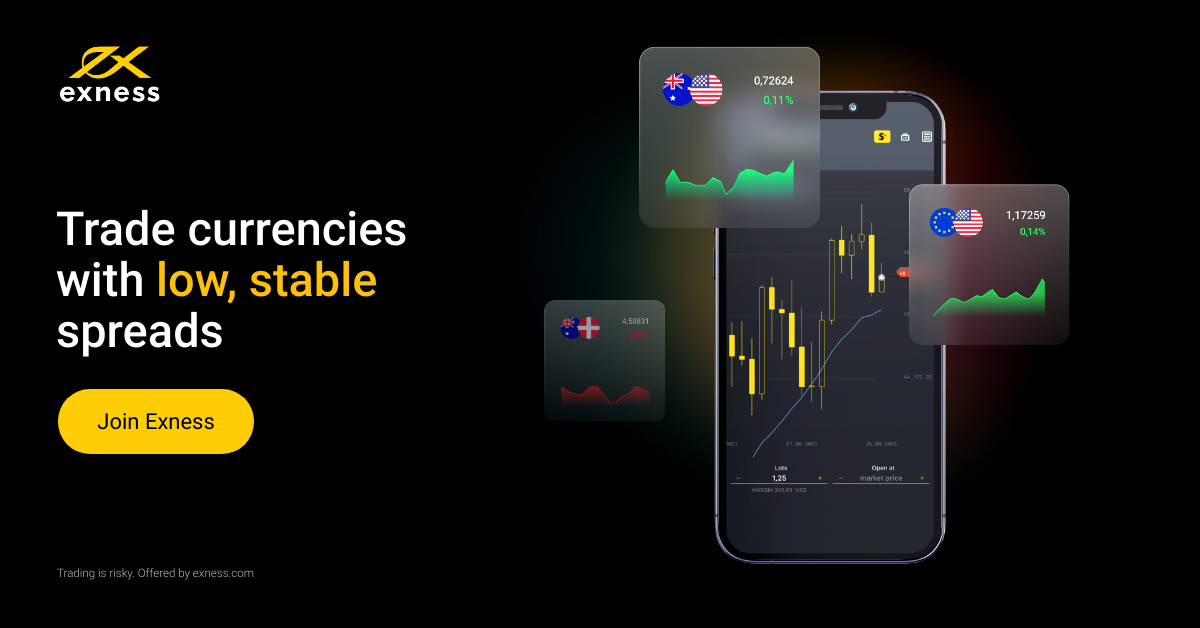
The foreign exchange market, commonly referred to as the Forex market, is a decentralized global marketplace where currencies are traded.
For beginning Forex traders entering this complex and dynamic environment, it is essential to have a solid foundation of knowledge and skills. This article aims to provide helpful tips for individuals who are new to Forex trading by outlining key areas of understanding and practice.
The first tip involves gaining a comprehensive understanding of the Forex market, including its structure and functioning.
Setting realistic goals is also crucial in order to manage expectations effectively.
Educating oneself on various trading strategies can help traders make informed decisions based on their preferences and risk tolerance.
Additionally, selecting the right broker that meets one’s specific requirements is vital for success in this field.
Utilizing demo accounts for practice purposes allows novices to familiarize themselves with the trading platform without risking real money initially.
Properly managing risk and money helps safeguard against potential losses while keeping emotions in check promotes rational decision-making during trades.
Analyzing market trends and indicators aids in identifying profitable opportunities, while continuous learning ensures adaptability in an ever-changing Forex landscape.
By following these tips, new traders can enhance their chances of achieving success in the Forex market.
Understanding the Forex Market
Understanding the Forex market requires a comprehensive grasp of global economic factors, as well as an awareness of how various political events can influence currency fluctuations.
The Forex market, also known as the Foreign Exchange market, is the largest and most liquid financial market in the world. It operates 24 hours a day, five days a week, with trillions of dollars traded daily.
One key aspect to understand about the Forex market is that it involves trading one currency for another. Currencies are always quoted in pairs, such as EUR/USD or GBP/JPY. The exchange rate between two currencies represents the value of one currency relative to another.
To navigate this complex market successfully, new traders must pay attention to economic indicators and news releases from major economies around the world. Factors such as GDP growth rates, inflation levels, interest rates, and employment figures can significantly impact currency values.
Political events also play a crucial role in shaping currency movements. Elections, government policies, geopolitical tensions, and trade disputes can all create volatility in the Forex market. Traders must stay informed about these events and their potential consequences on different currencies.
In conclusion, understanding the Forex market entails having a comprehensive understanding of global economic factors and being aware of how political events can influence currency fluctuations. By staying informed and analyzing relevant data carefully, new traders can increase their chances of making profitable trades in this dynamic marketplace.
Setting Realistic Goals
To establish achievable objectives, it is essential for aspiring Forex traders to set realistic goals that adhere to their risk tolerance and align with the market’s volatility and unpredictability.
Setting realistic goals is crucial in the Forex market as it helps traders maintain a disciplined approach and avoid excessive risk-taking. When setting goals, new traders should consider their financial situation, trading experience, and time commitment.
One important aspect of setting realistic goals is understanding the market’s inherent characteristics. The Forex market is known for its high levels of volatility and unpredictability. Therefore, it is important for new traders to recognize that losses are inevitable and part of the learning process. By setting realistic profit targets and accepting potential losses, traders can avoid unrealistic expectations that may lead to emotional decision-making.
Additionally, risk tolerance plays a significant role in goal-setting. Each individual has a different level of comfort when it comes to taking risks. It is important for traders to assess their risk appetite objectively and set goals accordingly. This ensures that they do not expose themselves to excessive risk or become overly cautious, potentially missing out on profitable opportunities.
Furthermore, new Forex traders should consider their available resources such as time commitment and capital availability when setting goals. Forex trading requires dedication and continuous learning. Traders must allocate sufficient time for researching markets, analyzing charts, implementing strategies, and reviewing trades.
In conclusion, setting realistic goals based on individual risk tolerance, market characteristics, and available resources is vital for new Forex traders. By doing so, they can develop a disciplined approach while managing expectations effectively in this highly volatile market environment.
Educating Yourself on Trading Strategies
Gaining knowledge of various trading strategies is crucial for aspiring Forex traders to enhance their decision-making abilities and maximize potential profits. Forex trading strategies are systematic approaches that traders use to determine when to enter or exit trades, manage risk, and optimize their overall trading performance.
These strategies can be based on technical analysis, fundamental analysis, or a combination of both. Technical analysis involves using historical price data and indicators to identify patterns and trends in the market. Traders who employ this strategy believe that past price movements can predict future price movements. They use tools such as moving averages, support and resistance levels, and chart patterns to make informed trading decisions.
On the other hand, fundamental analysis focuses on analyzing economic factors that may influence currency values. Traders who utilize this strategy examine macroeconomic indicators such as interest rates, GDP growth rates, inflation rates, and geopolitical events. By understanding these factors’ impact on currency values, traders aim to predict future exchange rate movements.
While there are numerous Forex trading strategies available, it is essential for new traders to educate themselves thoroughly about each strategy’s strengths and weaknesses before deciding which approach aligns with their objectives and risk tolerance. It is also crucial for traders to continuously update their knowledge by staying informed about current market conditions and industry developments.
In conclusion, educating oneself on different Forex trading strategies provides new traders with valuable insights into the complexities of the foreign exchange market. This knowledge equips them with the necessary skills to make informed decisions regarding trade entry points, risk management techniques, and profit optimization strategies.

Choosing the Right Broker
When selecting a broker, careful consideration must be given to factors such as regulatory compliance, trading platform features, transaction costs, and customer support quality.
Regulatory compliance is of utmost importance as it ensures that the broker operates within legal boundaries and protects the trader’s interests. Traders should verify if the broker is regulated by reputable authorities such as the Financial Conduct Authority (FCA) in the UK or the Commodity Futures Trading Commission (CFTC) in the United States.
Trading platform features play a vital role in executing trades effectively. It is essential to choose a broker that provides a user-friendly and reliable trading platform with advanced charting tools, real-time market data, and order execution capabilities.
Additionally, traders should consider transaction costs such as spreads or commissions charged by brokers for each trade. Lower transaction costs can significantly impact profitability over time.
Customer support quality is another critical factor when choosing a Forex broker. Traders need to ensure that they have access to responsive and knowledgeable customer service representatives who can assist with any queries or issues promptly.
In conclusion, selecting the right Forex broker is crucial for new traders. By considering factors such as regulatory compliance, trading platform features, transaction costs, and customer support quality, traders can make an informed decision that aligns with their trading needs and enhances their overall trading experience.
Practicing with Demo Accounts
Practicing with demo accounts allows traders to familiarize themselves with the trading platform, test different strategies, and gain confidence in their trading abilities before risking real money.
Demo accounts are virtual trading platforms that mimic real market conditions but use simulated funds. They offer a risk-free environment where new Forex traders can practice and refine their skills without the fear of losing money.
One of the key benefits of using a demo account is the opportunity to become familiar with the intricacies of the trading platform. Traders can explore various features, analyze charts, execute trades, and experiment with different order types without any financial consequences. This hands-on experience helps them understand how to navigate the platform efficiently and make informed decisions when it comes to actual trading.
Additionally, demo accounts allow traders to test different strategies without risking their capital. They can implement various approaches, such as technical analysis or fundamental analysis, and see how these strategies perform in different market conditions. By analyzing trade outcomes and adjusting their strategies accordingly, traders can identify what works best for them and develop a personalized approach to Forex trading.
Moreover, practicing with demo accounts builds confidence in traders’ abilities. As they gain experience and witness successful trades within the virtual environment, they develop a sense of assurance in their decision-making skills. This psychological boost can be crucial when transitioning from demo trading to live trading where real money is at stake.
In conclusion, utilizing demo accounts is an essential step for new Forex traders as it provides them with valuable hands-on experience on the trading platform, enables strategy testing without financial risks, and boosts confidence before venturing into live trading scenarios.
Developing a Trading Plan
Developing a comprehensive trading plan is crucial for Forex traders as it lays the foundation for disciplined decision-making, risk management, and long-term success in the volatile market.
A trading plan is a written document that outlines a trader’s objectives, strategies, and rules for executing trades. It serves as a roadmap that helps traders stay focused on their goals and avoid impulsive and emotional decisions.
A well-developed trading plan includes several key components. First, it should define the trader’s goals and objectives. This could include financial targets, such as profit targets or desired returns on investment.
Second, it should outline the trader’s preferred trading strategies and methodologies. This may involve technical analysis techniques, fundamental analysis approaches, or a combination of both.
Risk management is another critical aspect of a trading plan. Traders need to clearly define their risk tolerance levels and establish guidelines for position sizing, stop-loss orders, and profit-taking strategies. By implementing proper risk management techniques, traders can protect their capital from significant losses.
Furthermore, a trading plan should incorporate rules for trade execution and monitoring. This includes setting criteria for entering and exiting trades based on specific indicators or market conditions. It also involves regularly reviewing trade performance to identify strengths and weaknesses in the chosen strategies.
In conclusion, developing a comprehensive trading plan is essential for new Forex traders to navigate the complex Forex market successfully. It provides structure and discipline in decision-making processes while helping manage risks effectively. By adhering to their trading plans consistently over time, traders increase their chances of achieving long-term success in this highly dynamic environment.
Managing Risk and Money
Implementing effective risk management and money management strategies is crucial for Forex traders to safeguard their capital and optimize their potential for long-term profitability in the volatile market.
Risk management involves identifying, assessing, and mitigating potential risks that could result in financial losses. One important aspect of risk management is setting appropriate stop-loss orders to limit potential losses on each trade. Traders should determine their risk tolerance and set stop-loss levels accordingly, ensuring that they do not expose themselves to excessive risk.
Additionally, diversification is a key strategy in managing risk. By spreading investments across different currency pairs or asset classes, traders can reduce the impact of any single trade or event on their overall portfolio. This helps to protect against large losses if one particular trade goes against expectations.
Money management focuses on how much capital should be allocated to each trade. Traders should determine the amount of capital they are willing to risk per trade based on their overall trading strategy and risk tolerance. It is generally recommended to only risk a small percentage (usually 1-2%) of total trading capital per trade.
Furthermore, it is essential for traders to maintain discipline when implementing these strategies. Emotions such as fear or greed can lead to impulsive decisions that deviate from the established plan, potentially resulting in significant losses. By adhering strictly to risk and money management principles, new Forex traders can increase their chances of success in this challenging market environment.
Keeping Emotions in Check
Maintaining emotional control is crucial for Forex traders to make rational decisions and avoid impulsive actions that could lead to significant financial losses. Emotions such as fear, greed, and excitement can cloud judgment and drive traders to deviate from their trading plans. To keep emotions in check, it is important for new Forex traders to develop a disciplined mindset.
One effective way to manage emotions is by setting clear trading goals and adhering to a well-defined strategy. By establishing specific entry and exit points based on technical analysis or fundamental factors, traders can reduce the influence of emotions on their decision-making process. Additionally, using stop-loss orders can help limit potential losses and prevent emotionally-driven actions.
Another useful technique is practicing patience. Forex markets can be volatile, and it is essential for traders to wait for optimal trading opportunities instead of engaging in impulsive trades driven by emotions. Patience allows traders to remain calm during market fluctuations and make informed decisions based on thorough analysis.
Moreover, maintaining a healthy work-life balance can contribute to emotional stability. Taking breaks from trading activities, engaging in hobbies, exercising regularly, and spending time with loved ones can help alleviate stress and maintain a clear mindset.
In conclusion, keeping emotions in check is imperative for new Forex traders as it enables them to make rational decisions based on analysis rather than impulsivity. Developing discipline through goal-setting strategies, practicing patience, and maintaining work-life balance are essential aspects of managing emotions effectively in the Forex market.

Analyzing Market Trends and Indicators
Transitioning from the previous subtopic of ‘Keeping Emotions in Check,’ it is crucial for new Forex traders to develop the ability to analyze market trends and indicators. This skill enables traders to make informed decisions based on objective data rather than being swayed by emotions or subjective beliefs.
Analyzing market trends involves studying the historical price movements of currency pairs, identifying patterns, and predicting future price direction. Traders can use various technical analysis tools such as moving averages, trend lines, and oscillators to assist in this process.
Additionally, understanding market indicators provides valuable insights into the overall health and performance of an economy. Economic indicators like gross domestic product (GDP), consumer price index (CPI), and employment reports provide essential information about a country’s economic conditions. By monitoring these indicators, traders can gauge the potential impact on currency values.
Mastering the art of analyzing market trends and indicators requires dedication, practice, and continuous learning. It involves interpreting complex data objectively without personal biases or preconceived notions. By adopting a systematic approach to analyzing market trends and utilizing reliable indicators, new forex traders can enhance their decision-making abilities, identify potential trading opportunities, and increase their chances of achieving profitable outcomes in the dynamic world of foreign exchange trading.
Continuous Learning and Improvement
To continuously enhance their trading skills and stay ahead in the ever-changing Forex market, traders must engage in a process of ongoing learning and improvement. The Forex market is highly dynamic, influenced by various economic, political, and social factors. Therefore, it is crucial for new traders to develop a mindset of continuous learning and improvement.
One way for new Forex traders to continuously learn and improve is through education. They can enroll in online courses or attend seminars that provide comprehensive knowledge about the Forex market, trading strategies, risk management techniques, and analysis methods. Additionally, reading books written by experienced traders can offer valuable insights into successful trading practices.
Another important aspect of continuous learning is staying updated with current market news and trends. Traders should regularly follow financial news websites, subscribe to newsletters or blogs from reputable sources, and participate in online forums where they can discuss ideas with other traders. By staying informed about global events that impact currency markets, traders can make more accurate predictions and better-informed decisions.
Furthermore, new traders should constantly evaluate their performance to identify areas that need improvement. This can be done by maintaining a trading journal where they record their trades along with the reasoning behind them. Analyzing past trades helps identify patterns of success or failure and allows for adjustments to strategies accordingly.
In conclusion, continuous learning and improvement are essential for new Forex traders who want to succeed in this competitive market. By continually expanding their knowledge base through education, staying updated with current trends and news, as well as evaluating their performance objectively, traders can enhance their skills over time and increase their chances of achieving profitable outcomes.
Conclusion
In conclusion, new Forex traders can greatly benefit from following these helpful tips.
By understanding the Forex market, setting realistic goals, educating themselves on trading strategies, choosing the right broker, practicing with demo accounts, managing risk and money effectively, keeping emotions in check, analyzing market trends and indicators, as well as continuously learning and improving their skills, they can increase their chances of success in this competitive industry.
It is important for new traders to approach Forex trading with discipline and a commitment to lifelong learning.


